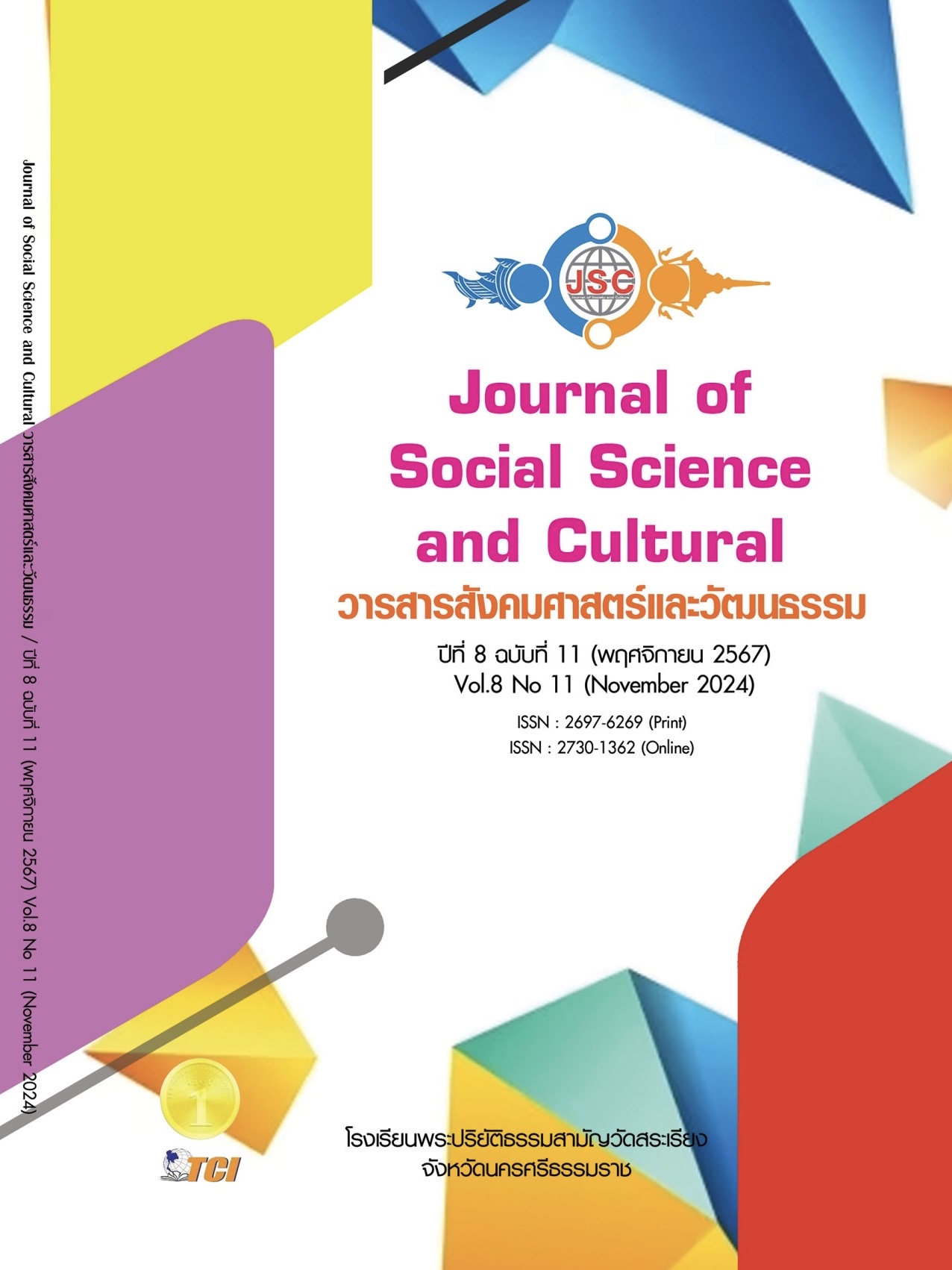META ANALYSIS OF STRATEGIC RELATIONSHIPS IN FROZEN SEAFOOD BUSINESS MANAGEMENT FOR COMPETITIVE ADVANTAGE UNDER THE CONCEPT OF BLUE ECONOMY
Main Article Content
Abstract
This research aimed to develop a structural equation model (SEM) to analyze the influence of supply chain management on the competitive advantage of frozen seafood businesses under the blue economy concept which was the concept to promote the sustainable use of marine and coastal resources. The study explored the causal relationships between resource management, production processes, distribution, and delivery. A meta-analysis and structural equation modeling approach was employed to analyze data from 45 related studies collected from online databases published in 2014 - 2024. The research instruments were research data form and a quality assessment form. The results showed that: 1) Resource management, production process and distribution had a statistically significant positive relationship with competitive advantage (r = 0.469, 0.260 and 0.2509, respectively) 2) Resource management and distribution had a statistically significant negative relationship with production process (r = -0.971 and -0.980, p < .05) 3) Production process and delivery had a statistically significant negative relationship with distribution (r = -0.956 and -0.952, p < .05) and 4) Delivery Had a statistically significant negative relationship with competitive advantage (r = -0.997, p < .05). The developed model could accurately explain the complex relationships between the factors in supply chain management that affect competitive advantage, with an accuracy rate of 92% which shows data consistency. This information can be applied to develop appropriate strategies for stakeholders in the frozen seafood industry aiming to enhance their competitiveness.
Article Details
References
Agustian, K. et al. (2023). Human Resource Management Strategies in Achieving Competitive Advantage in Business Administration. Journal of Contemporary Administration and Management (ADMAN), 1(2), 108-117.
Allied Market Research. (2023). Frozen Seafood Market Size, Share, Competitive Landscape and Trend Analysis Report, by Type, By Form, By Distribution Channel: Global Opportunity Analysis and Industry Forecast, 2023 - 2032. Retrieved September 15, 2024, from https://www.alliedmarketresearch.com/frozen-seafood-market
Barney, J. B. (1997). Gaining and Sustaining Competitive Advantage. Reading, MA: Addison-Wesley Publishing Company.
Basuki, M. (2021). Supply Chain Management: A Review. Journal of Industrial Engineering and Halal Industries, 2(1), 9-12.
FAO. (2024). FAO Report: Global fisheries and aquaculture production reaches a new record high. Retrieved September 15, 2024, from https://www.fao.org/newsroom/detail/fao-report-global-fisheries-and-aquaculture-production-reaches-a-new-record-high/en
Hailu, A. & Tembo-Mwanaumo, E. (2023). Supply Chain Management Practice and Competitive Advantage: Systematic Literature Review. Logistic and Operation Management Research (LOMR), 2(2), 44-57.
Hair, J. F. et al. (2010). Multivariate Data Analysis. (7th ed.). New Jersey: Prentice Hall.
Harsasi, M. & Minrohayati, N. A. (2017). The impact of supply chain management practices on competitive advantage. International Journal of Economic Policy in Emerging Economies, 10(3), 122-134.
Ismayilov, V. et al. (2021). Influence of internal production conditions on the efficiency and competitiveness of enterprises. Future Business Journal, 7(1), 1-10.
Kuwornu, J. K. M. et al. (2023). The adoption of sustainable supply chain management practices on performance and quality assurance of food companies. Sustainable Futures, 5,100103. doi:10.1016/j.sftr.2022.100103.
Li, S. et al. (2006). The impact of supply chain management practices on competitive advantage and organizational performance. Omega, 34(2), 107-124.
Panigrahi, S. S. & Bahinipati, B. (2019). Sustainable supply chain management: a review of literature and implications for future research. Management and Environmental Quality, 30(5), 1001-1049.
Steinmetz, H. & Block, J. (2022). Meta-analytic structural equation modeling (MASEM) : New tricks of the trade. Management Review Quarterly, 72(3), 605-626.
The Commonwealth. (n.d.). Sustainable Blue Economy. Retrieved September 15, 2024, from https://thecommonwealth.org/bluecharter/sustainable-blue-economy


